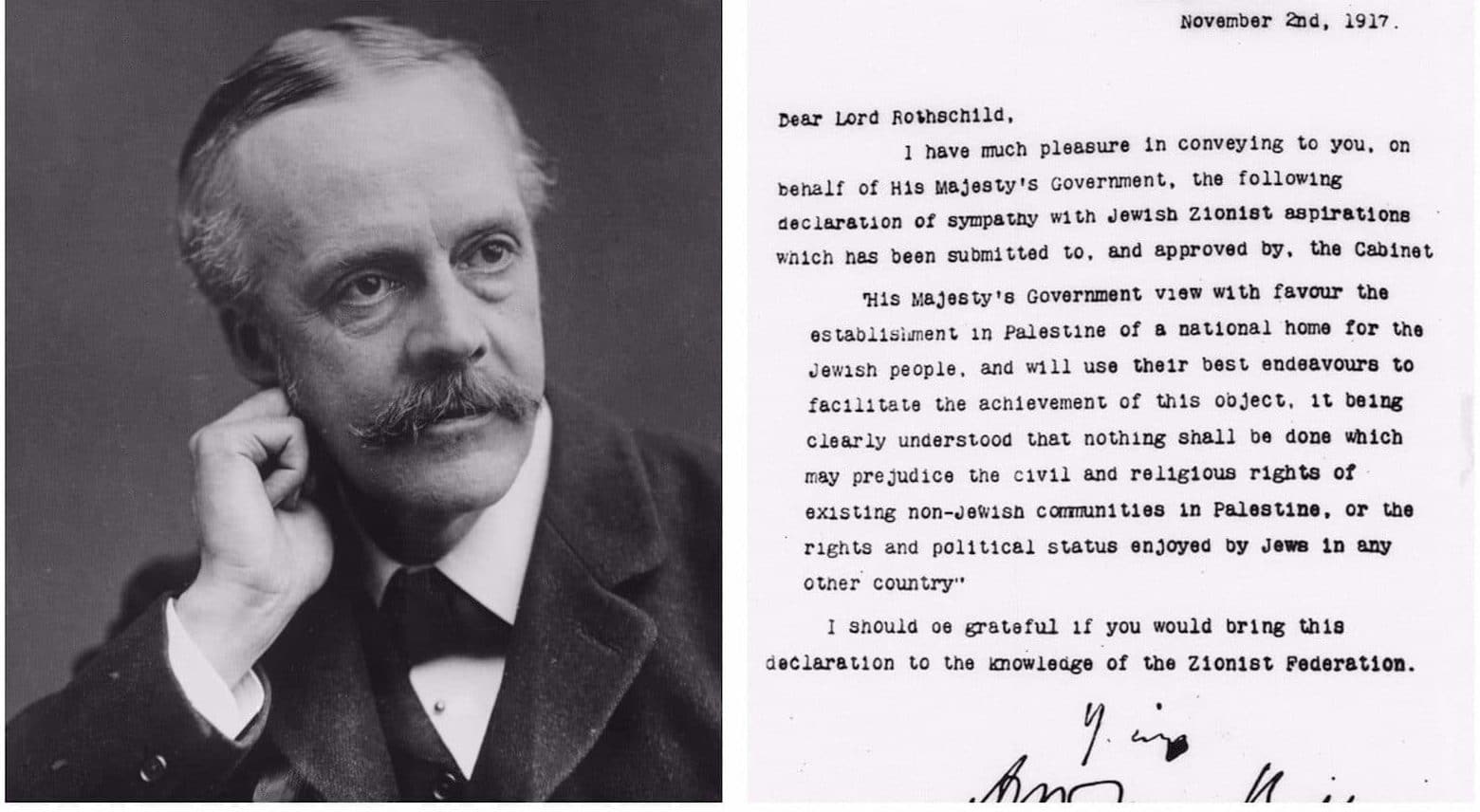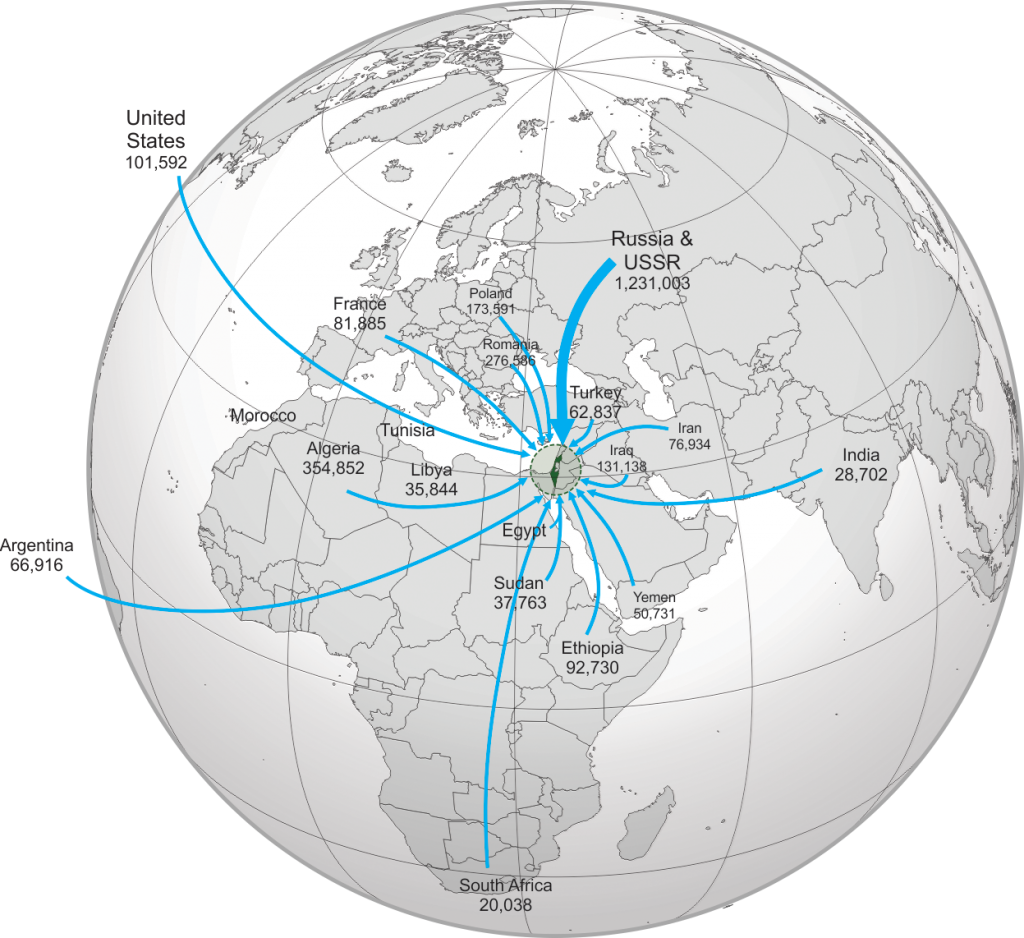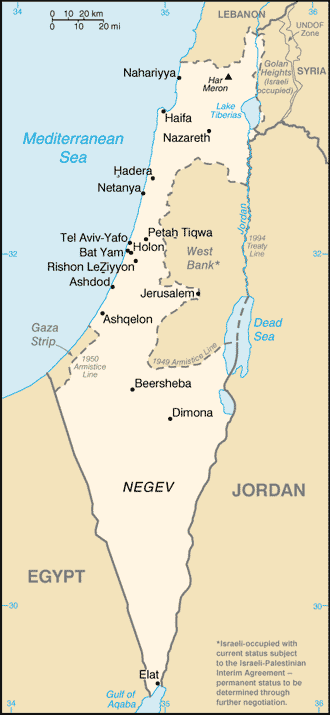
...................................................................................................................................................................
The Balfour Declaration
Things People Forget About The
Balfour Declaration 100 Years On
By ONE FOR ISRAEL (Messianic Jews
In Israel)
What
are we to make of the Balfour Declaration today?
These
words have been prayed by Jewish people around the globe quite literally every
morning, noon and night, throughout their 2000 year exile:
“Sound
the great shofar for our freedom; raise the banner to gather our exiles, and
gather us from the four corners of the earth. Blessed art thou, O Lord, who
gathers the dispersed of Your people Israel.”
“Return
in compassion to your city, Jerusalem, and rest within it as You have said;
rebuild it soon in our days as an everlasting building, and speedily set up therein
the throne of David. Blessed art thou, O Lord, who rebuilds Jerusalem.”
Wherever
they may be in the world, Jewish people traditionally say these blessings as
part of their prayers three times a day, facing Jerusalem. Just like Daniel.
The
people, the Book and the Land are thoroughly intertwined, and the long exile
away from Israel has been a matter of grief expressed in Jewish liturgy
throughout the generations.
Whenever
a Jewish couple marry, whenever a Jewish person dies, whenever traditional
Jewish blessings are made over meals, the prayers include a longing for Israel
and Jerusalem.
So
just imagine the joy that many felt when the Balfour declaration was made
public by the British government in 1917 to establish a Jewish homeland in
Palestine:
“His Majesty’s Government view with
favour the establishment in Palestine of a national home for the Jewish people,
and will use their best endeavours to facilitate the achievement of this
object, it being clearly understood that nothing shall be done which may
prejudice the civil and religious rights of existing non-Jewish communities in
Palestine, or the rights and political status enjoyed by Jews in any other
country.”
Arthur James Balfour, British foreign secretary, 2
November 1917
(To read the full letter, see transcript below)
(To read the full letter, see transcript below)
Now
it must be said that although it was the answer to literally billions of
prayers (just think of it – three times every day by millions of Jews – for two
millennia!) not to mention the fulfillment of
prophecies uttered by almost every Biblical prophet, this
declaration has caused more than a little consternation.
Palestinian
leaders are demanding an apology from the British government for giving away
what was not theirs to give.
After
the passing of a hundred years, most have forgotten that it was not a
unilateral act of the UK.
There
was no UN at that time, or even League of Nations, but in the wake of the Turks
finally losing their grip on the countries in the Levant, several nations were
allied in agreement that there should be some provision made for the Jewish
people within Palestine.
1) Britain did not act alone, but it was a move
endorsed by many nations together.
The
aspiration to create a homeland for the Jewish people had the agreement of
President Woodrow Wilson since the US had joined the first World War, as well
as Italy and Japan who, along with Britain and France, would participate in the
San Remo conference and become members of the Council of the League of Nations.
Even
the Pope had assented, describing return of the Jews to Palestine as “providential;
God has willed it.”
The
Cambon letter Issued in June 1917 clarified full support for the cause from the
French government:
“It
would be a deed of justice and of reparation to assist, by the protection of
the Allied Powers, in the renaissance of the Jewish nationality [nationalité
juive] in that land from which the people of Israel were exiled so many
centuries ago”.
And so the foreign ministers of Britain (Balfour), France
(Pichon), the United States (Robert Lansing), Italy (Sidney Sonnino), and Japan
(Makino Nabuaki) all had been in agreement with the endeavour.
“In the era before the United Nations and the League of
Nations, there existed no higher international forum than this”, according to Middle
East historian, Martin Kramer. [1]
The
British government have declined to issue an apology to the Palestinian
leadership, saying,
“The
Balfour Declaration is an historic statement for which HMG (Her Majesty’s
Government) does not intend to apologize. We are proud of our role in creating
the State of Israel. The task now is to encourage moves towards peace… The
Declaration was written in a world of competing imperial powers, in the midst
of the First World War and in the twilight of the Ottoman Empire. In that
context, establishing a homeland for the Jewish people in the land to which
they had such strong historical and religious ties was the right and moral
thing to do, particularly against the background of centuries of persecution.” [2]
As
the British response states, the British Empire was not the only empire at
large at the time.
Certainly,
there are matters in the histories of each of our nations that should cause
mortification when we consider the evil that has been done in the past.
However,
Ottoman Turks were from Turkey, not Palestine. People forget that the Ottoman
Empire was a colonialist enterprise too.
2) Palestine was not free, but had been under
occupation by the Turkish Empire for 400 years.
It is
important to remember that in 1917 the Middle East was not a collection of
autonomous nations that were suddenly overrun by the West.
The
Ottoman Empire was just that – an empire. The Turks had been the colonizers for
four centuries, and before them, there had been a series of Muslim and Christian
empires dominating the region and to some degree imposing their religions, or
restricting the religions of others.
There
was the Byzantine empire, ruling from Constantinople, followed by an invasion
from Arabia which imposed Islam on the region, followed by the Crusaders from
Europe, the Mamluks from Egypt, and then the Ottomans from Turkey.
Different
Islamic powers had conquered and taken control for 973 years, imposing the
“Jizya” tax on non-Muslims and outlawing church bells and construction of
synagogues and churches.
Jews
and Christians living in Palestine had been second class citizens for 80% of
the centuries-long Turkish occupation.
Equal
rights were not given to non-Muslims until 1839, and only in order to appease
the Europeans as the Turks struggled to maintain sovereignty in the region. [3]
Consider: when was the last time that Palestine actually
ruled itself? When was it ever free from occupation?
It
was free just before the Roman occupation that was in force at the time of
Yeshua, after the Israelites had successfully beaten back the Greek occupation
in 167 BCE.
The
Jews had a sizable chunk of self-rule then, and hundreds of years of autonomy
between the Exodus and the first exile to Babylon.
Apart
from that, the land has been passed back and forth from pillar to post, from
conqueror to conqueror, and the people of the land just had to deal with
whatever powers had control at the time.
The
allied forces were to some extent attempting to parcel out the lands of the
Middle East away from the hands of the Turks and back to the people groups
themselves.
There
is much to say about their method and the measure of success, but Rabbi
Jonathan Sacks, Chief Rabbi of the UK, declared it “visionary and moral
politics of a high order”.
Perhaps
it is not hard to imagine a higher morality, since the integrity of the allied
powers was severely compromised by self-interest, but there is some weight to
the idea that the intention was to return the lands rather
than to take them. Sacks continues,
“It
was an anti-imperialist gesture, after centuries of Christian and Muslim
imperialism with no autonomous states, they attempted to return Ottoman ruled
lands to the tribes that lived in them. Lloyd George was seeking more justice
and wanting an end of the days of Empire, to return the lands to their original
inhabitants.” [4]
The
San Remo conference in April 1920 turned former Ottoman territories into
mandates, which would be administered on behalf of the League of Nations.
They
made Britain “responsible for putting into effect the declaration originally
made on November 2, 1917, by the Government of His Britannic Majesty, and
adopted by the said Powers.”
3) Britain soon changed its tune, blocking Jewish
immigration just as the Holocaust hit its peak.
Due
to national self-interest, Britain issued the infamous White Paper of 1939,
severely limiting Jewish immigration to Palestine during World War II, and
currying favor with the Arab world.
Instead
of creating a Jewish homeland, Britain instead was working towards an Arab
state in which Jewish people could live as a minority.
It is
important to remember that such a state would continue to be under Islamic rule
– not an insignificant fact.
Today,
the Palestinian people are tragically trapped in yet another occupation, but
the prospect of a 51st Muslim state and the disappearance of the only Jewish
state causes a great dilemma.
The
Permanent Mandates Commission of the League of Nations ruled that this White
Paper “was not in accordance with the interpretation which, in agreement
with the mandatory power and the Council, the commission had always placed upon
the Palestine mandate.”
In
short, Britain’s refusal to give the Jewish people a national home, or even a
haven, was ruled illegal. Sadly, it was too late for millions of Jewish people
who perished at the hands of the Nazis.
At a
time when they most needed a refuge, Britain was turning Jewish people away and
denying them access to the land of their forefathers.
Ultimately,
the British pulled out and Israel declared its independence in 1948 – a state
that would welcome all those Hitler would consider Jewish enough to kill.
There
have always been Jewish communities living in Palestine throughout the
centuries, but when the British pulled out of the region and Israel declared
its independence, finally, it could become a safe haven for all Jewish people,
not just for the few.
They
were no longer a minority living at the mercy of others.
As
American novelist, Robert Frost, defines it, “Home is the place where,
when you have to go there, they have to take you in.”
This
is what the Jewish people have prayed for centuries, and this is what God has
now given them, according to his promises.
“Comfort,
comfort my people,” says the Lord. (Isaiah
40:1)
[1] Martin
Kramer, The Forgotten
Truth about the Balfour Declaration, 5th June 2017, Mosaic
Magazine
“In May 1918, the Italian government pledged to Sokolow to help “facilitate the establishment in Palestine of a Jewish national center (centro nazionale ebraico).” In January 1919, Japan informed Weizmann that “the Japanese Government gladly take note of the Zionist aspirations to establish in Palestine a national home for the Jewish people and they look forward with a sympathetic interest to the realization of such desire.” (Similar endorsements came from Siam and China, the other two then-independent states of East Asia.)”
“In May 1918, the Italian government pledged to Sokolow to help “facilitate the establishment in Palestine of a Jewish national center (centro nazionale ebraico).” In January 1919, Japan informed Weizmann that “the Japanese Government gladly take note of the Zionist aspirations to establish in Palestine a national home for the Jewish people and they look forward with a sympathetic interest to the realization of such desire.” (Similar endorsements came from Siam and China, the other two then-independent states of East Asia.)”
[2]
Jewish Telegraphic Agency, British government rejects Palestinian
request to apologize for Balfour Declaration, 25th April 2017
[3]
Kelvin Crombie, For the Love of Zion, Hodder and Stoughton 2008,
p.29
We are an Israeli ministry composed of Jewish & Arab
followers of Yeshua (Jesus) who are all about blessing Israel through sharing
the gospel online, educating the new generation of born-again believers through
our one and only Hebrew-speaking Bible College in Israel, and helping holocaust
survivors by supplying humanitarian aid.











